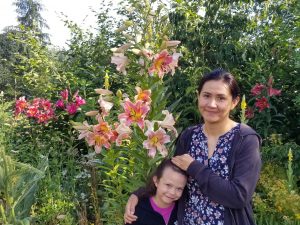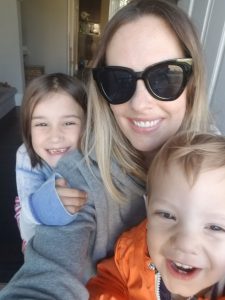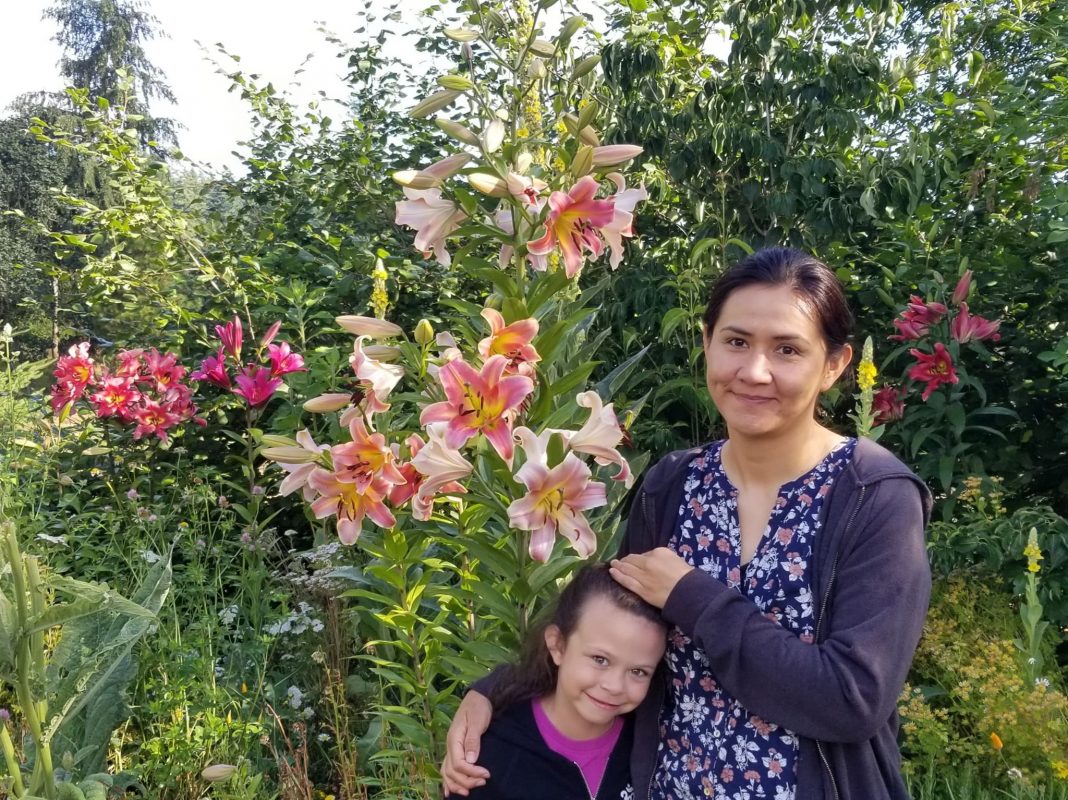As school districts around Washington State are deciding how the coming year will unfold, parents are facing the reality that, for now at least, remote learning may be here to stay. It’s one more stressor on families already stretched to their limits by COVID-19, the economic shutdown and working from home – if they still have jobs.

Therapist Cary Hamilton knows the experience firsthand. As the owner of Olympia Therapy, not only is she a working parent herself, she works with dozens of children, teens and families throughout the Puget Sound region and hears their accounts of the mental and emotional toll the pandemic is taking. Supporting those families is the purpose behind her new Playful Wisdom Parenting program, which launched August 2020.
The program offers tools that give parents a greater sense of control and reduce stress levels while providing children with enhanced feelings of safety. “It’s all about parenting with the brain in mind,” says Hamilton. “When you know how you’re going to respond, you feel more confident and become more consistent in your responses. That’s an important part of moderating expectations to what the kids are capable of, so they feel safe and secure.”
The online course includes short, 30-minute video webinars along with handouts and worksheets that can be shared with family members to get everyone on the same page. One plan also allows access to Hamilton or other play therapists via Facebook live or weekly Google chat calls. “We haven’t figured out specifically what platform we’re going to use, but there will be a group that gets together on a call to talk about that week’s skill and troubleshoot issues in a more personal manner,” she says. “I can quickly show them how to use the skill in a particular situation.”
Playful Wisdom Parenting is a compilation of the tools Hamilton shares with parents of children who come to her for therapy. “Play therapy is an evidence-based program that we know works,” she explains. “With everything that’s going on, I wanted to provide more for people who may not be able to get their child into therapy or might be struggling a bit. This is preventative wellness.”

As an example, one tool involves the simple fix of changing the word “but” to “and.” Instead of listening to what a child says and responding with, “Yes, but . . .” Hamilton recommends using “Yes, and” to validate what has just been said, even when what the child wants is not possible right then. “You’re still able to provide your insight or option,” she notes. “When we say, ‘but’ it negates or discounts everything that the child is experiencing.”
For instance, rather than responding with, “I know you’re frustrated but we need to do it this way,” a parent could say, “I understand that you’re really frustrated and that you want to do that, and it’s not safe to do so. Let’s try a different way.” “There’s a really big difference in how that language comes across,” says Hamilton.”
Another example is using statements instead of questions when communicating with children about something like sitting down for dinner or preparing for bed. “A general rule of thumb is that if you have enough information to ask a question, you have enough information to make a statement,” says Hamilton. “Statements allow for options to be pondered whereas questions leave an opportunity for kids to refuse. Often, parents will offer up a question which gives the child the capacity to say ‘no’, and then get upset when that happens.”
It’s the difference between saying, ‘It’s time for dinner. Go wash your hands and head to the table,’ versus asking ‘Are you ready for dinner?’ “You’re actually inciting resistance when you frame it as a question,” Hamilton explains.

Once parents have completed the Playful Wisdom core curriculum, they’ll have access to more specialized webinars such as Managing Anxiety for Girls with ADHD. “They’ll be able to say, ‘I’m wondering about this topic,’ and then get a similar webinar that’s going to provide them with that information from a children’s mental health specialist perspective,” says Hamilton.
Her goal is to provide parents with enough tools that regardless of what happens with school districts, the economy or COVID-19, they’ll be able to reduce stress and foster genuine connections within their relationships with their children and each other.
“There’s a lot of fraying happening in adult relationships right now because of stress,” she notes. “What you learn in Playful Wisdom can bring that stress level down. Parents feel more confident and in control and kids feel safer because there’s predictability and consistency, things that have been ripped away recently. By a parent learning the Playful Wisdom strategies, they can create a calmer, more consistent way to have a relationship with their child that is less conflicted and more teamwork-oriented.” While such skills are especially useful now, they can be applied at any time under any circumstances, even after school resumes.
Learn more by visiting the Olympia Therapy or Playful Wisdom websites or calling 360-357-2370.
Sponsored

















































